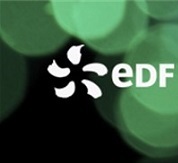Regional efficiency programme valuating energy and multiple benefits: a balance between bill and comfort and far beyond
Résumé
In the residential sector it is often observed that savings linked to energy efficiency actions are smaller than estimated inter alia especially due to the rebound effect. Thus, according to the sole energy viewpoint, outcomes of actions can seem low or even negative whereas in taking into account Multiple Benefits (MBs) the conclusion tends to be more positive. Nevertheless, these conclusions are more complex to obtain. To include the MBs in the analysis, we use the functional economy model that focuses on the performance of a response to a functional need instead of the material production. This theory has other specific key features: the incorporation of external factors in meeting functional needs and a deep interaction with local economic development. Thereby, in such a framework, some of the MBs can be taken into account via an estimation of the monetized value of: Impact on household's welfare: Set-temperature increase (willingness to pay for comfort). Green value (building market value linked to energy labelling). Health impacts. Economic development: Disposable income fed back into economy (propensity to consume). Added value created from the local installers. Value creation for utilities (loss margin, Energy Efficiency Obligation if existing). Social welfare: GHG mitigation (carbon price) and other externalities. Social expenditure decrease. To investigate this large field of study, we rely on a French regional energy efficiency programme providing incentive for a wood stove in case of an existing electric space heating system. 45 households were surveyed regarding their energy consumption and their characteristics. Likewise, the survey highlights household behaviours concerning both space heating before and after refurbishment (e.g. declared set-temperature). A three years billing is used to calculate the energy savings. Beyond the electricity savings, we give a monetary value of the MBs considered on a progressively extended assessment scope, starting from a household perspective towards a societal perspective: adding step by step the value of MBs, we explicit the increase of energy efficiency value even if the figures include large uncertainties. We show the interest of such an approach by ranking the MBs and showing that the green value could be the largest MB of the studied programme.
Domaines
Environnement et Société| Origine | Fichiers produits par l'(les) auteur(s) |
|---|
Loading...

